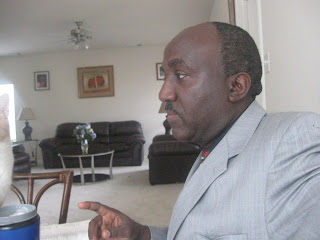Dos
Be cheerful and make pleasant conversation that focuses on the patient. NB: You can visit by silence, - Ministry of presence 1. None verbal communication. 2. Body language, i.e., touch, nodding etc.
Display concern for the patient’s illness and respect for his or her feelings.
· Don’t draw parallelism. “My brother had the same problem, unfortunately he died.”
·
Acknowledge patients feelings. Avoid saying, “I Know” instead, say “I understand.”
Acknowledge patients feelings. Avoid saying, “I Know” instead, say “I understand.”
Watch for doors that lead to the feeling level of communication and be alert for negative feelings.
Shape the tone and substance of your conversation from cues, verbal and nonverbal, offered by the patient;
1. Has the patient signed off?
2. “I am ready”
3. “I want to go home” DIE?
4. “I am ok” “I know I have a few days to life but I am OK”
Listen attentively and be empathetic.
· Give patient time to talk
· Eye contact is very important
· Avoid starring in every corner of the room.
Take notice of what is not said as much as what is said.
· Body language
· Eye contact
· Emotions, i. e tears, sadness, etc
· Sighs, heavy breath taking…
Share Scripture and prayer; ask the patient if she/he has special needs as you prepare to pray.
· Listen for special “unusual needs”
Don’ts
Don’t tell the patient unpleasant news including your troubles.
· How good the sermon was on Sunday – unless the patient asks.
· This visit is not about you, it is about the patient
Don’t whisper when talking to relatives or medical staff in the patient’s room.
Don’t assume a comatose patient cannot hear.
· Great percentage of patients in comatose hear and are aware of the surrounding
What is the purpose of a church visit to the hospital? Here are a few:
- To share Christ with those who do not know Him (goodwill ambassador)
- To express Christian love to a person who may be afraid, discouraged, or lonely (fellowship and love)
- To show friendship to a member of the Body of Christ (relational development)
- To offer the encouragement of the Scriptures and prayer (spiritual edification)
- To affirm that the church family is there to support the person (sympathy, empathy and solidarity)
- To minister to the person and family in times of death, fear and uncertainty (emotional, spiritual and psychological support via one's presence); although theologically questionable, to many people the presence of a pastor psychologically and emotionally symbolizes the presence of God's care.
- Rewarding people who have faithfully served our church by honoring them with some attention (recognition) when they feel vulnerable. Though this may sound trite, relationships are built around reciprocity.
Needs of the Dying
Spend their last days with their loved ones
Remain in control of their decisions
Be treated with respect
Have their spiritual/personal views respected
Be treated with compassion and kindness
Die with dignity
Religious support for dying and grieving Pastoral care services
Provide meaningful support and guidance for dying people and their families and caregivers.
At the end of people's lives:
· Represent the congregation in conveying a community of support.
· Help individuals discuss their feelings and beliefs about death.( Case: “I am dying and I am unhappy about it)”
· Discussions about an individual's relationship with God or any need for spiritual guidance and direction. Forgiveness, repentance, etc
· Emotional and social support , including visits, calls, and check-ins
Case # 1
The case of a patient (mother) who wanted to die and repeatedly said she was ready, but the daughter, the only child was praying for healing
Case # 2
Case of a 98 year old female who was praying that God may “take her “but the family was praying that she recovers. Two of her children were praying that she live two more years to make it 100.
Case # 3
Case of a faithful church member who had stayed in hospital for many months, he became tied of being sick and being in hospital. He asked the church not to pray for his getting better for he was ready to die.















